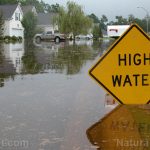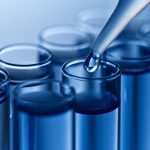
Healthy and hydrated: How much water should you drink daily?
Saturday, April 15, 2017 by Frances Bloomfield
http://www.waterwars.news/2017-04-15-this-is-how-much-water-you-should-drink-every-day-to-stay-healthy-and-hydrated.html

Most health authorities recommend that we drink eight glasses or 64 ounces of water a day. Others, however, think that we should drink much more. Those who fall in the latter category believe that we need to drink water constantly, even if we’re not thirsty. As with a lot of things, writes Kris Gunnars of AuthorityNutrition.com, how much water you truly need is dependent on a number of factors.
Are you thirsty?
Our bodies will let us know when we need to drink up. The feeling of thirst hits us whenever our total water content dips below a certain level. We drink to alleviate this sensation. This deep-seated thirst instinct ensures that we keep our bodies well-hydrated. Sometimes, however, circumstances demand that we increase our water intake. We lose water when we sweat during exercise or when exposed to hot weather. Health conditions such as vomiting require us to replenish the fluids we lost. Breastfeeding mothers should also consume more water.
Since the human body is a little over 60 percent water, it should come as no surprise that water is essential to our survival. Water is necessary for our organs and systems to continue functioning properly. Among the many jobs water does for us is aiding digestion, regulating body temperature, and normalizing body pressure, reports Heidi Goodman, as seen in Health.Harvard.edu. Water has even been said to temporarily increase our metabolism.
Additionally, if you suffer from constipation or kidney stones then water may be able to help you with those health issues.
Not drinking enough water puts us more at risk of becoming dehydrated. When we’re dehydrated, we feel dizzy and weak. Severe dehydration can make us feel some confusion and fall unconscious. Even mild dehydration can negatively affect us, so one should never ignore our thirst. (Related: Need another reason to drink more water? Check out these amazing health benefits)
How to stay hydrated
Water isn’t the only thing that supports our fluid balance. Other drinks such as caffeinated beverages like coffee and tea contribute to our daily water needs. These drinks are widely considered to be diuretics or substances that increase the production of urine. However, a study published by the National Center for Biotechnology Information states that this might not necessarily be true, since the diuretic effects of coffee and tea are weak. Even most foods are full of water, so eating your three square meals can help maintain your fluid balance.
Going on from the above, having a drink with each meal is a good way to avoid dehydration. There’s no need for you to ingest massive amounts of water all at once. Do this gradually throughout your day.
A dry mouth is one the earliest signs of dehydration, noted Nicole McDermott of Greatist.com. If your mouth is starting to feel a bit parched, grab your water bottle and take a sip.
Another way to gauge how hydrated or dehydrated you are is to take a bathroom break and check the color of your pee. Dark-yellow urine could indicate that you need more water in you.
For most people, your body knows what it wants and when it wants it. If it’s telling you that you’re thirsty, then you need to drink. Once you’re no longer thirsty then you can stop drinking. You will lose more fluids if you’re working out or experiencing high heat so increase your fluid intake.
You can read up on water filters by visiting WaterFilters.news.
Sources:
Tagged Under: Tags: dehydration, drinking water, hydrate, hydration, water





